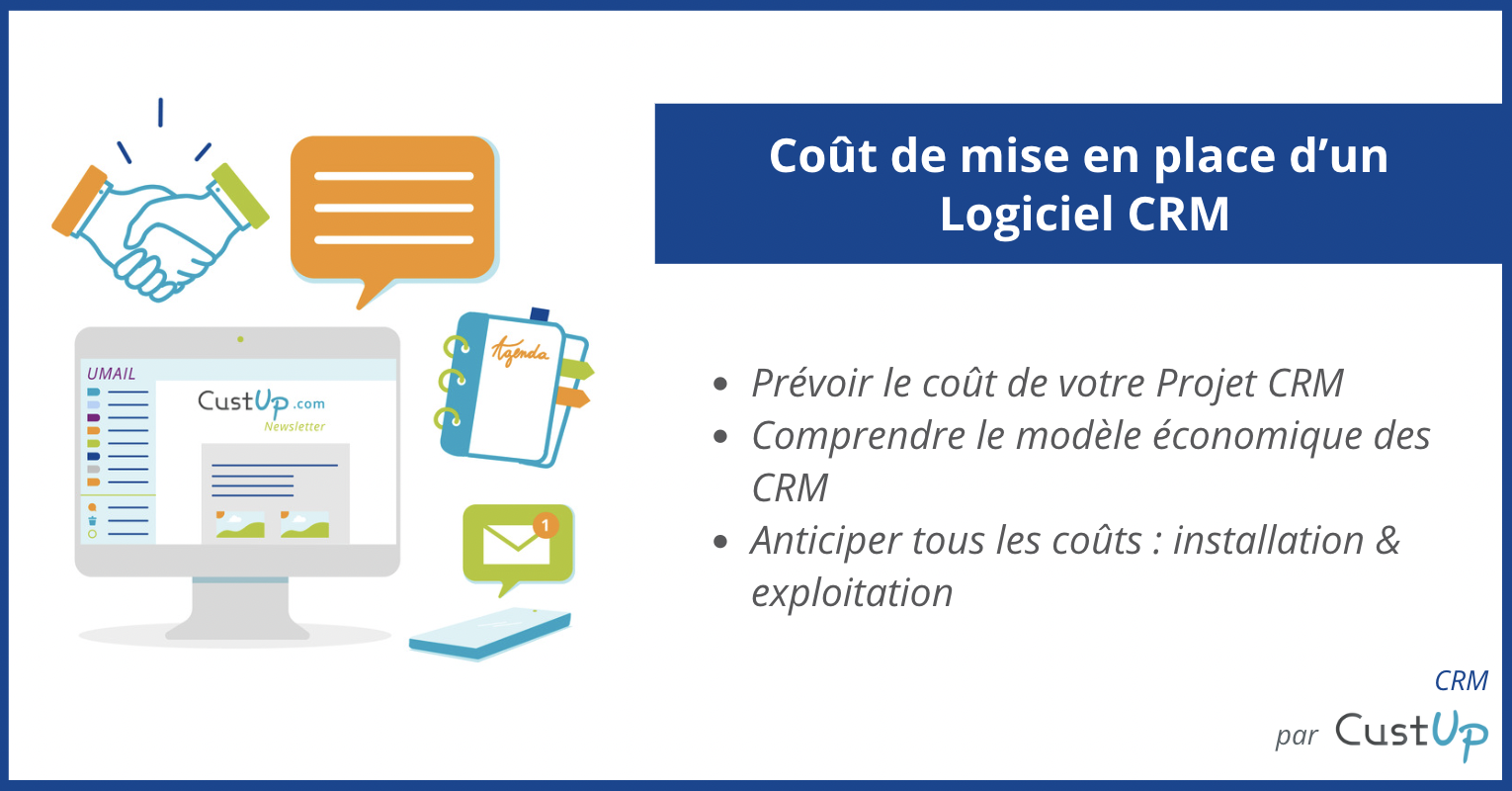Table des matières
ToggleFundamental Principles of CRM
Customer Relationship Management (CRM) is a set of practices, strategies, and technologies used by companies to manage and analyze interactions with their past, current, and potential customers. The goal is to strengthen business relationships, improve customer retention, and increase sales.
One of the fundamental principles of CRM is to centralize all customer information in one place. This includes demographic data, purchase histories, past interactions with customer support, and even personal preferences and online behavior. With this information at hand, sales and support teams can provide a more personalized and efficient customer experience.
A good CRM strategy also relies on customer segmentation. This approach allows dividing the customer database into different segments based on defined criteria, such as customer lifetime value, purchase preferences, or specific behaviors. With this segmentation, it becomes easier to develop targeted and relevant marketing campaigns.
Another key element of CRM is the use of automation. Modern CRM tools often integrate automation features that can handle repetitive tasks, such as sending follow-up emails or creating reminders for sales calls. This automation allows teams to focus on interactions with more added value.
Moreover, the analytics and reports provided by CRM systems are essential for making informed decisions. Dashboards and analytical reports allow tracking key performance indicators (KPIs), measuring customer satisfaction, and detecting trends that can influence future strategies.
CRM also encompasses multichannel interaction management solutions. In today’s world, customers interact with companies through various channels, such as social media, emails, messaging platforms, and phone calls, to name a few. An effective CRM must integrate and synchronize all these interactions to provide a cohesive and seamless overview.
Ultimately, implementing a robust CRM system not only helps strengthen customer relationships but also optimizes overall sales and marketing processes. This ultimately leads to increased profitability and continuous improvement in business performance.
Essential Features of a CRM
CRM or Customer Relationship Management is a strategic tool that enables companies to effectively manage their interactions with customers. It is based on centralizing customer information to analyze and optimize the customer relationship. By adopting a CRM, companies can improve their customer satisfaction and increase their loyalty.
Implementing a CRM involves transforming internal processes. It is essential to train employees on using the tool and to align the company’s objectives with the CRM’s functionalities. A good CRM also allows tracking the history of interactions, managing requests, and anticipating future needs.
An effective CRM solution must have several essential features:
- Contact Management: A good CRM centralizes contact information, making customer data easily accessible.
- Interaction Tracking: Records all interactions between the company and customers, providing an overview of business relationships.
- Marketing Automation: Allows planning and executing personalized marketing campaigns, using collected data to target customers more accurately.
- Analytics and Reporting: Provides analytical tools to assess sales performance and market trends, aiding strategic decision-making.
- Sales Management: Tracks the sales process from start to finish, improving opportunity and sales pipeline management.
- Customer Service: Manages requests and support tickets, ensuring effective follow-up and quick problem resolution.
By integrating these functionalities, a CRM not only improves operational efficiency but also strengthens the customer relationship, which is crucial for remaining competitive in today’s market.
The Role of CRM in a Business
Customer Relationship Management, or CRM, is a strategy used by companies to manage interactions with current and potential customers. CRM centralizes information about customers, such as purchase history, preferences, and previous interactions with the company.
An effective CRM system allows collecting and analyzing customer data to improve service, satisfaction, and loyalty. It aims to optimize communication with the customer and to personalize each interaction to meet their specific needs. This may include using tools like automated emails, targeted marketing campaigns, and tracking support tickets.
CRM solutions are often integrated with other enterprise systems, thus enhancing interdepartmental collaboration and information consistency. Whether in sales, marketing, or customer service, all teams can access the same data and use it in a coordinated manner.
The major role of CRM in a business is to optimize the management of customer relationships to increase satisfaction and loyalty. By centralizing information and analyzing customer behaviors and preferences, a business can:
- Enhance the responsiveness and personalization of services
- Increase operational efficiency by allowing better coordination among different departments
- Develop targeted marketing campaigns based on real and relevant data
- Improve supply chain management to better meet customer expectations
- Facilitate predictive analytics to anticipate trends and future needs
Integrating a CRM also allows tracking team performance and measuring customer satisfaction using precise KPIs (key performance indicators). This facilitates informed and strategic decision-making based on quantitative and qualitative data.
Implementing a CRM System

Implementing a CRM system (Customer Relationship Management) is a crucial step for any business wishing to optimize its customer relationship management. A CRM enables centralizing and analyzing customer interactions, thereby promoting better decision-making and improvement in commercial performance. Here are the main steps to effectively deploy a CRM.
Assessing the company’s needs is the first step. It is essential to understand which features are necessary to address the specific challenges of the business. This includes identifying existing processes, pain points, and opportunities for improvement.
Choosing the right CRM software is crucial. There are a multitude of solutions on the market, each offering different features. Companies need to evaluate the available options based on their needs, budget, and technological infrastructure.
Training users is often a neglected yet essential step. Investing time in training teams on the use of the CRM ensures effective adoption. This includes regular training sessions, detailed usage guides, and accessible technical support.
Integrating the CRM with existing systems maximizes its effectiveness. The CRM must be able to communicate with other applications like ERP, marketing automation tools, and customer service platforms. This ensures a smooth user experience and consistent data management.
- Assessing the company’s needs
- Choosing the appropriate CRM software
- Training users
- Integrating with existing systems
Monitoring and optimizing the use of the CRM is an ongoing task. Companies must regularly analyze the collected data, adjust processes accordingly, and leverage new features offered by the CRM. This allows maintaining a quality customer relationship and continuously improving performance.
By implementing an effective CRM system, companies can not only improve customer satisfaction and loyalty but also increase their revenues by optimizing their business processes and decision-making.
Steps to Choose a Suitable CRM
Customer Relationship Management (CRM) is essential for many businesses seeking to enhance their interaction with customers. A CRM system allows centralizing information, automating certain tasks, and analyzing data to better understand customer needs.
Implementing a CRM system requires careful planning and a clear understanding of the company’s objectives. It is important to identify the current processes of customer relationship management and determine how a CRM can improve these processes.
Once needs are identified, it is crucial to choose the appropriate technology. CRM solutions vary in terms of features, costs, and complexity. Some companies may opt for cloud solutions for their flexibility, while others may prefer an on-premise installation for more control.
Integrating the CRM with existing company systems, such as supply chain management software or predictive maintenance tools, is also a key factor. This integration allows for a holistic view of operations and better coordination between different departments.
To choose a suitable CRM, follow these steps:
- Needs Assessment: Identify specific goals and challenges that the CRM must address.
- Research Available Options: Compare different CRM solutions in terms of features, usability, and cost.
- Trial and Demo: Test CRM systems through free trials or demonstrations to assess their suitability.
- Consider Integrations: Check compatibility with your company’s existing tools (e.g., ERP, billing systems).
- User Feedback Analysis: Consult reviews and feedback from other users to evaluate overall satisfaction.
Adopting a CRM can transform your customer relationships, thus enhancing operational efficiency and satisfaction.
Best Practices for CRM Integration
Customer Relationship Management (CRM) has become a central element for businesses seeking to improve the quality of their interactions with customers. This system enables better understanding of consumer behaviors, optimizing sales, and increasing customer satisfaction.
Adopting a CRM also facilitates the centralization of customer data, making information easily accessible and actionable by different departments within the company.
Implementing a CRM system involves several key steps. It is essential to clearly define the objectives that the company wishes to achieve with the CRM. These objectives can vary from improving customer retention to optimizing sales processes.
- Deploy tailored training for users to maximize system adoption.
- Ensure integration with other tools and platforms used by the company.
- Establish regular monitoring to assess CRM effectiveness and make necessary adjustments.
It is crucial to adhere to certain best practices for CRM integration. Using a phased approach can facilitate employees’ adoption of the system. Choosing a modular solution allows adjusting functionalities according to the company’s needs.
- Involve end users from the beginning of the project to identify their specific needs and expectations.
- Conduct testing phases to identify and resolve potential issues before a full deployment.
- Regularly update the system to benefit from the latest technological innovations and improved features.
By following these best practices, companies can maximize the benefits of their CRM investment, thereby improving operational efficiency and customer satisfaction.





